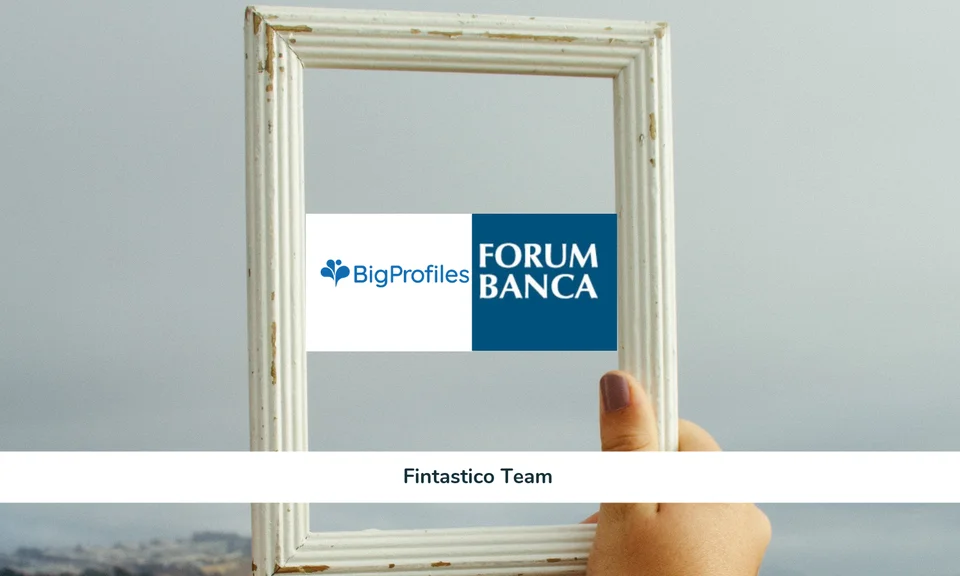- 26/09/2019

Marie Johansson is the Italian Coutry Manager at Tink, a platform that offers the tools to let anyone build the future of financial services across Europe. Marie shared her insights with regards to PSD2 and open banking.
What is Tink?
We provide an open banking platform that enables traditional banks, fintechs and start-ups alike to build new products and services across Europe.
We call it the rails and brains of open banking. “The rails” allows our customers to fetch financial data from 2 500 banks in Europe, and initiate payments between accounts. “The brains” refers to our value-adding data products that make sense of the data and makes it presentable in a Personal Finance Management app that allows end-users to gain a better understanding of their finances.
We started in 2012 and have offices in eight locations in Europe, including Milan. Our technology is powering some of the biggest players – including PayPal, NatWest, Klarna and ABN AMRO.
It has arrived. PSD2 will push retail banks to open up their customer data. How will change the relationship between banks and customers?
PSD2 enables more companies to build and launch products that are using financial data. It means more competition for the traditional bank, where customers can become more disloyal to their core bank.
But we also believe that this is an opportunity of a lifetime for traditional players to do banking better. The opening of the industry means that banks will, for the first time, get full insight into their customers' finances and can create better customer experiences and offer more valuable products as a result of this.
Which is the role of Tink in this open banking era?
We have trailblazed in the spirit of PSD2 since 2012. We started with an app ourselves in Sweden – accessed financial data from banks and gave insights and advice to our 500 000 users based on this. In 2015 regulation realised that what we had done, unlocking the industry, needed to happen across all Europe to encourage healthy competition in the banking industry – and allow new players to enter.
In many ways, we’ve shown what the customer value in an open banking era can be – and we’ve also been able to impact how PSD2 should take form because of this.
How banks and fintech are using your solution?
The Swedish mortgage bank SBAB is one of the earliest examples. They use our account aggregation product to access their customer’s mortgage data, offer a price comparison on what they have and a better deal with SBAB if it’s possible.
ABN AMRO is another early example who looked at the Tink app and realised they have to build a similar solution in order to stay relevant with a more digital generation. Their standalone app Grip is completely built on Tink’s Personal Finance Management and Account Aggregation product. In Grip customers can get a holistic overview over their finances regardless of where they bank, and get valuable insights and advice based on their transaction history.
The Portugese mega bank Caixa Geral de Depósitos has recently launched DABOX – a new finance app that allows their customers to see all of their payments accounts from Portugese banks, make payments and gain valuable insights.
What are the main benefits of account aggregation for customers?
It’s two-fold.
Firstly, as a customer you shouldn’t have to settle with one bank in order to get a full overview over your finances. If another provider can offer you a better savings account, or a better mortgage – you should still be able to manage your finances without switching between different apps. Or even worse, book appointments in different retail branches.
Secondly, banks benefits from having a holistic overview over all of their customer’s finances. This allows them to truly deliver data-driven advice and insights – and offer better rates if a customer has an account with someone else that they can match.
It’s this approach that unlocks the financial industry, creates competition and gives customers better experiences, insights and deals.
How banks can leverage data enrichment and categorisation and provide a personalized banking experience?
Raw data by itself is not worth much. Transactions needs to be cleaned up in order to make them understandable. And they need to be categorised in expenses and incomes in order to offer personal advice based on a customer’s financial data.
Many of our Personal Finance Management features are built on the ability to do this. For example, our technology can suggest budgets for different categories based on the customer’s average spends in these.
What are your expectations in attending Forum Banca this year?
I have been working for Tink with the Italian market since April this year and the interest for our product has been great. So I expect to continue many of the dialogues that we have ongoing and also to meet and get to know the reality of other banks and fintechs that I haven’t met yet.



![What [the heck] is InsurTech? image](https://media.fintastico.com/images/network-782707_1280.2e16d0ba.fill-72x72.png)